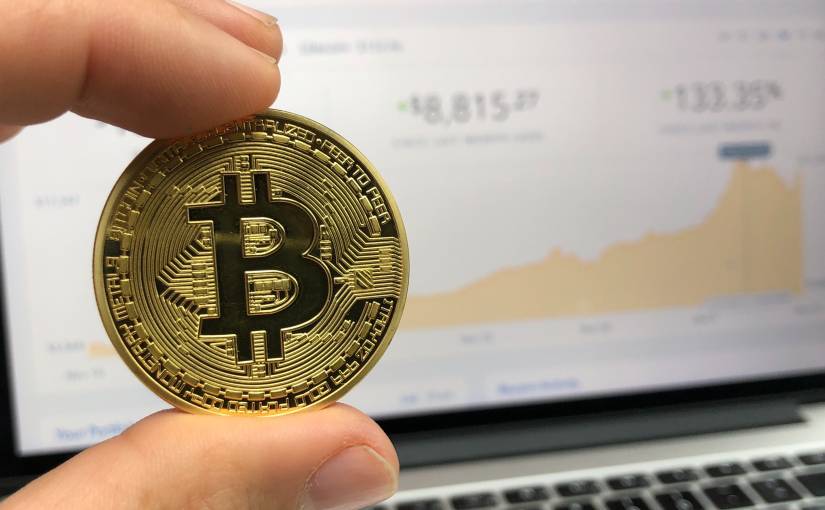There’s a lot of speculation around whether blockchain technology will fundamentally transform the regulatory processes and requirements for companies raising money on public markets — but that may not be the best way to frame the conversation. The rise of blockchain can teach the regulatory environment.
Certainly, there are aspects of the current regulatory environment that blockchain technology can enhance and make more efficient, but the notion that the existing system is obsolete and should be overhauled is a bit misleading.
Capital markets have existed for centuries and have evolved to adopt new technologies as they emerged, giving companies access to the trillions of dollars held globally.
How Initial Coin Offerings (ICOs) Have Changed the Landscape
Initial coin offerings — where investors and speculators can fund proposed ventures by acquiring cryptocurrency tokens — are the reason many people started paying attention to blockchain’s role in public markets. Because there are certain similarities between buying tokens to fund an ICO and purchasing shares on the stock market, some people have seen the crypto market as presenting a viable alternative model of public investing and trading in a deregulated space. But does the theory pan out in practice? Probably not.
In terms of minimum listing requirements, ICOs are the Wild West.
There’s virtually no due diligence on whitepapers (documents that outline the specifics of a company’s product and business model). Additionally, allegations of price manipulation of ICO tokens run rampant. Take a look at the case of so-called FOMO coins and pump-and-dump schemes. On top of that, investors may be misled to believe that tokens represent equity ownership versus rights to future business profit.
If anything, there should be more regulation in this space so investors can make informed choices before they buy into an ICO.
The conversation around public trading and blockchain demonstrates that there’s a sizable portion of new market participants who believe that regulation — in its current form — has become too cumbersome.
In this regard, ICOs are not being touted as a disruptive new model that will improve regulation and compliance; they’re simply being chosen as a last resort by individuals disillusioned with the present system.
Beyond the Hype Lies a Legitimate Complaint
In many ways, ICOs have essentially become a way for companies and entrepreneurs to boycott what they perceive to be regulatory excess. It’s a protest movement, and capital markets should try to recognize why people are boycotting and adjust to these new realities — because they do raise some interesting questions.
Should disclosure obligations be lighter?
When was the last time an investor read 10 pages of risk factors put together by the firm’s legal team? And do we need quarterly financial reporting, or would the latest balance sheet and burn rate be enough? How could blockchain technology automate the dissemination of this information to stakeholders? Furthermore, if investors are willing to lay down tens of millions of dollars based on nebulous ICO proposals, is it necessary for a company to prepare a full-blown prospectus?
Changes Are Coming — but They Won’t Be as Big as You Think
Regardless of how listing regulations could or should be changed, there’s no question that they continue to play a vital role. The various listing processes, company disclosures, and due diligence requirements may seem tedious, even daunting. But these measures are necessary for anyone who wants to sell interests in a business — legally, ethically, and economically.
That’s because there’s a good reason why the global equity markets amount to more than $250 trillion while the crypto market is only at $175 billion. The rigor of the listing process means that savvy investors can have confidence in the integrity and authenticity of listed companies. The rigorous listing process is not accurate for ICOs.
That said, regulatory bodies aren’t shying away from bringing ICOs and other digital trading into the fold.
The U.S. Securities and Exchange Commission recently rolled out its Framework for “Investment Contract” Analysis of Digital Assets, which determines whether a digital asset should be treated as a security under federal law. The way a digital asset is legally handled — under the law — could open the door to publicly listed companies considering security tokens and ICOs as alternative funding structures when they’re looking to raise money for research and development, for instance.
Regardless of how commonplace ICOs might become for investors, today’s global equity capital markets aren’t going anywhere.
They’ll continue to grow and embrace new technologies. Just think about how they’ve gone from physical trading floors to automated trading of dematerialized, ledger-based securities in a few short years. It’s logical to assume that blockchain-based solutions — such as having investors’ identities prebuilt into a distributed ledger for regulators to query easily — will be adopted in time. But that doesn’t dramatically change the regulatory and listing requirements. It simply makes them more efficient.
Potential Benefits of Blockchain Technology Within Public Markets
There are other inefficiencies that blockchain could address. For instance, the onus is currently on investors to keep track of sources — such as antiquated disclosure mechanisms, news feeds, and company websites — for the most up-to-date information on the securities they hold.
Blockchain could be useful in automating this process, making life easier for both investors and regulators. By providing improved access to information on a distributed ledger shared by all stakeholders, it also has the potential to streamline activities such as assigning shareholder proxies and voting on boards.
Blockchain could improve regulation is insider reporting, which has traditionally operated on the honor system.
Participants are technically required to disclose their activity within a limited time frame through platforms like the System for Electronic Disclosure by Insiders — or SEDI — but any sort of accountability is limited. A distributed ledger could change this by automatically tracking and validating beneficial ownership and reporting on any insider trading, bringing increased compliance with these regulations.
With its transparent reporting and immutable records, some people speculate about the potential for blockchain to streamline Know Your Client requirements, which protect both investors and advisors. However, I don’t believe distributed ledger technology is necessarily the solution for this.
If we had an open banking system and privacy laws that permitted firms to talk to each other, for example, then it would be easy to view and verify an investor’s financial information — regardless of whether it was on a distributed ledger. Whether this is feasible (or desirable) is an entirely different debate.
What Regulation Looks Like Tomorrow
For companies seeking financing or liquidity for existing investors, the global equity capital markets remain the deepest, most liquid pool of capital. As new technologies emerge, we’re bound to see the equity capital markets evolve as they have since their inception, and blockchain is no exception.
I expect that blockchain technology will provide new platforms on which these markets can operate — providing transparency, efficiency, and innovation to companies, shareholders, and regulators alike.
ICOs may have come on the scene as a deregulated, controversial way for companies to attract investors, but they raise important questions for companies looking for funding and public exchanges alike.
While ICOs might be more in line with an Indiegogo campaign than traditional financing, they represent an attractive alternative funding structure that could facilitate early-stage projects and more. On the regulatory side, exchanges and securities regulators should learn from ICOs and why they appeal to companies and investors to ensure that the benefits of listing and accessing the global equity capital markets outweigh the burden of regulation and disclosure.
In the shorter term, regulators can look to blockchain technologies for the situations I mentioned before: disseminating information, streamlining proxy management, and tracking insider activity and beneficial ownership. I believe these and other changes will come about as global equity capital markets continue to graduate to more advanced technologies.










